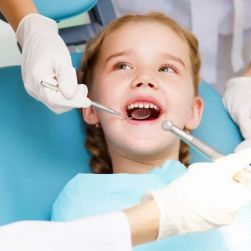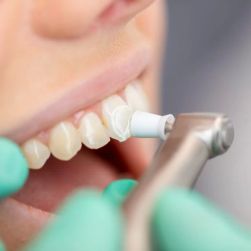What Role Do Dentures Play in the Oral Health of Elderly People, and How Can They Be Properly Maintained?
Dentures have long been considered a vital component in maintaining oral health for elderly people. As individuals age, they frequently encounter oral health challenges, including tooth loss, which can significantly affect their overall well-being. In the United States, over 36 million people wear dentures, highlighting their importance in restoring function and confidence. Introducing solutions for oral health issues linked to aging, dentures offer practical benefits while requiring conscious maintenance efforts. This article discusses the crucial role dentures serve for seniors and how proper upkeep can enhance their lifespan and functionality.
The Importance of Dentures for Elderly Oral Health
Dentures play an indispensable role in the oral health of elderly individuals by restoring essential functions lost due to missing teeth. Without teeth, eating becomes a challenge, which can lead to dietary issues, malnutrition, and a subsequent decline in overall health. Dentures help replenish the proper chewing ability, aiding in efficient digestion and nutrient absorption. Moreover, wearing dentures can improve speech, giving individuals an opportunity to communicate more clearly and confidently. Beyond the functional benefits, dentures also ensure aesthetic satisfaction, allowing seniors to maintain a more youthful appearance. This contributes to enhanced social interactions and improved mental well-being, which are crucial for maintaining a high quality of life in senior years.
Types of Dentures and Their Suitability
There are different types of dentures available that cater to a variety of needs and preferences, which underscores the adaptability and significance of dentures in oral health care for seniors. Full dentures replace an entire set of teeth and are suitable for those who have lost the majority of their natural teeth. Partial dentures serve individuals who still have some of their natural teeth, serving to fill in the gaps and prevent other teeth from shifting. Implant-supported dentures offer a more permanent solution and can provide additional stability and comfort. Understanding which type of denture is most appropriate for individual needs can greatly enhance comfort and functionality, improving the overall effectiveness of denture use.
Proper Maintenance of Dentures
The longevity and functionality of dentures greatly depend on how well they are maintained. To ensure optimal oral health, dentures should be cleaned daily using a soft brush and non-abrasive cleanser designed specifically for denture care. It's important to soak them in a cleansing solution overnight to eliminate bacteria and odors. Regular visits to the dentist for adjustments are crucial to avoid sore spots or improper fit that could cause oral infections or discomfort. Additionally, understanding proper denture handling can prevent unnecessary breakage, which often causes significant inconvenience and expense.
Common Challenges and Solutions in Denture Maintenance
Despite the significant benefits that dentures offer, elderly individuals face challenges in maintaining them. Common issues include discomfort, mouth sores, and speaking difficulties. Proper denture fit is essential for avoiding these issues, necessitating periodic checks and adjustments by dental care professionals. Furthermore, elderly people need education on denture maintenance and operations. Technology has introduced various tools and products to make denture care easier and more efficient. These innovations allow seniors to independently manage their oral health, promoting both physical and mental well-being.
Emotional and Social Impact of Dentures
The use of dentures extends beyond physical health, offering significant emotional and social benefits for elderly individuals. Seniors often face social isolation and a lack of confidence when dealing with tooth loss, impacting their willingness to engage with community activities. Dentures restore self-esteem and can encourage active participation in social gatherings, leading to improved mental health. It's crucial to recognize the holistic benefits that dentures provide in uplifting the lives of older adults, reinforcing the essential nature of proper oral health practices.
Conclusion: Ensuring Optimal Use and Care of Dentures
Dentures serve as a transformative solution for resolving oral health challenges facing elderly people. They play a crucial role in restoring oral functions, improving appearance, and enabling social engagement, all of which contribute to enhanced quality of life. Ensuring proper fit, cleanliness, and maintenance is vital for maximizing their benefits. Regular dental checkups and adhering to professional advice on denture care can significantly extend the functionality and comfort of dentures. Dentistry Toothtruth offers resources and guidance on managing dentures effectively. It's important for families and caregivers to be informed about these aspects to assist seniors in maintaining good oral health. The proactive care of dentures not only aids in physical health but also fosters emotional confidence and social inclusion among elderly individuals, making it an indispensable aspect of senior oral health care.






